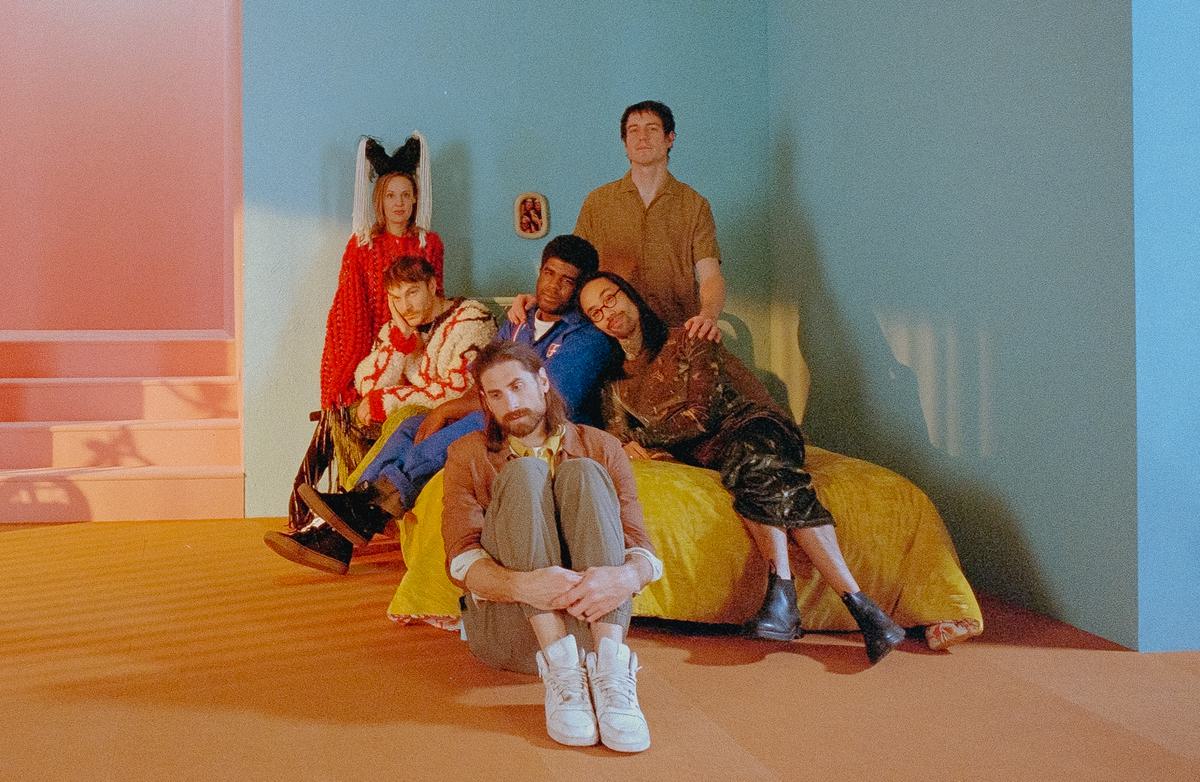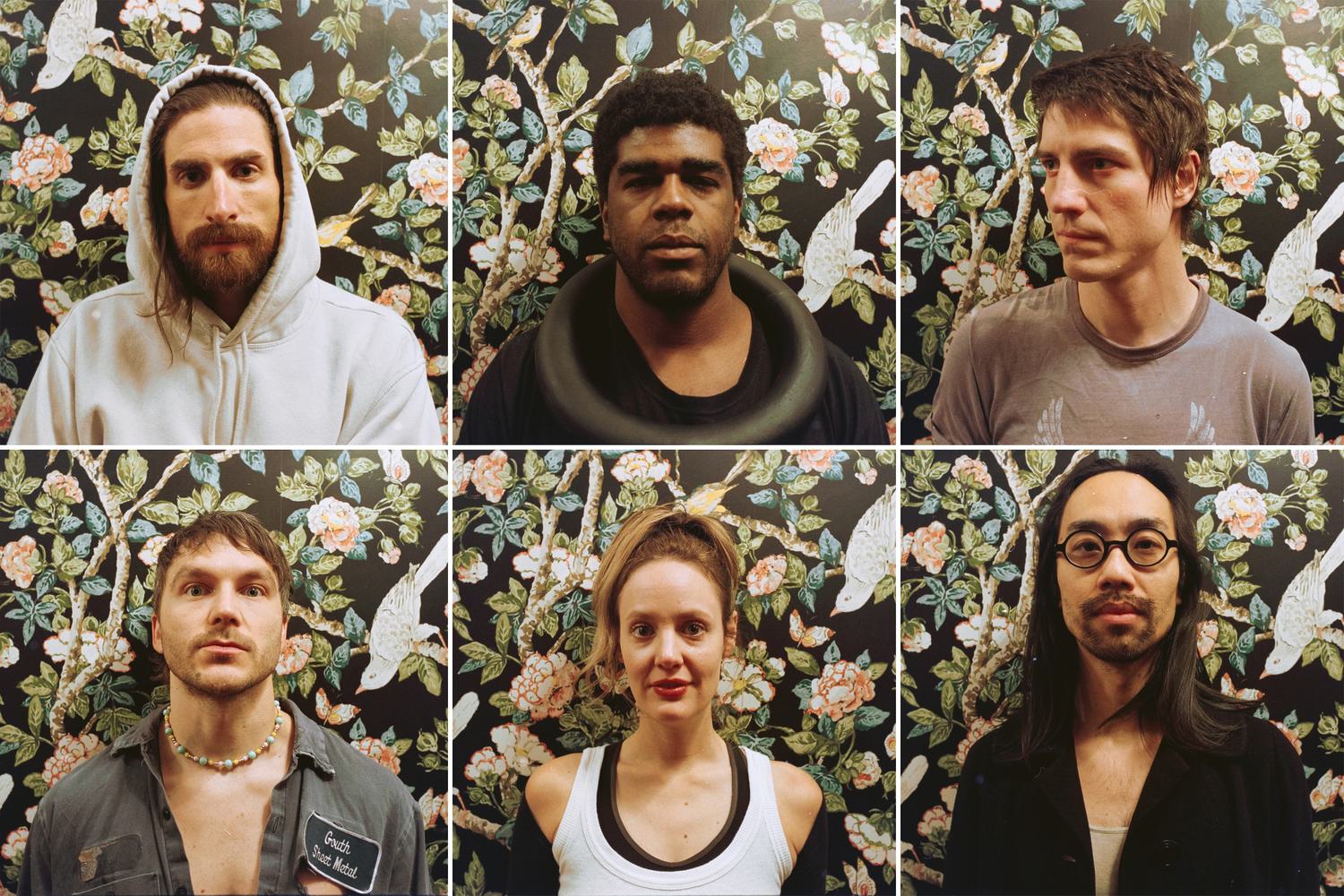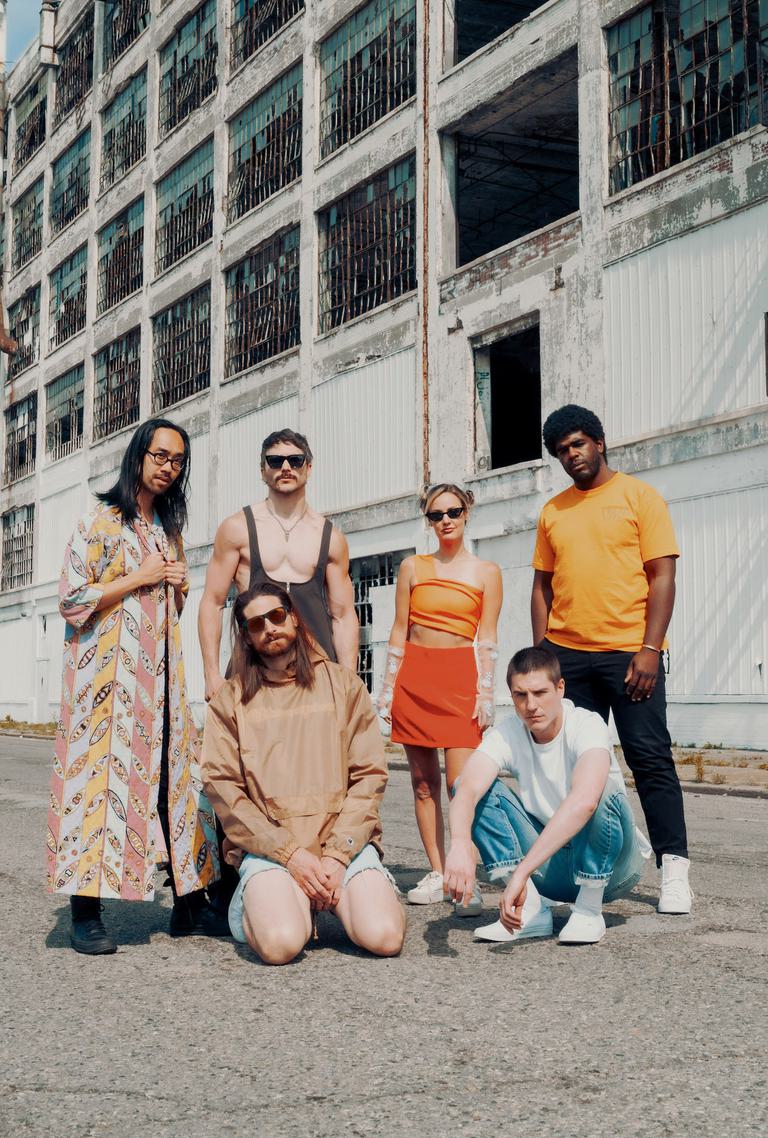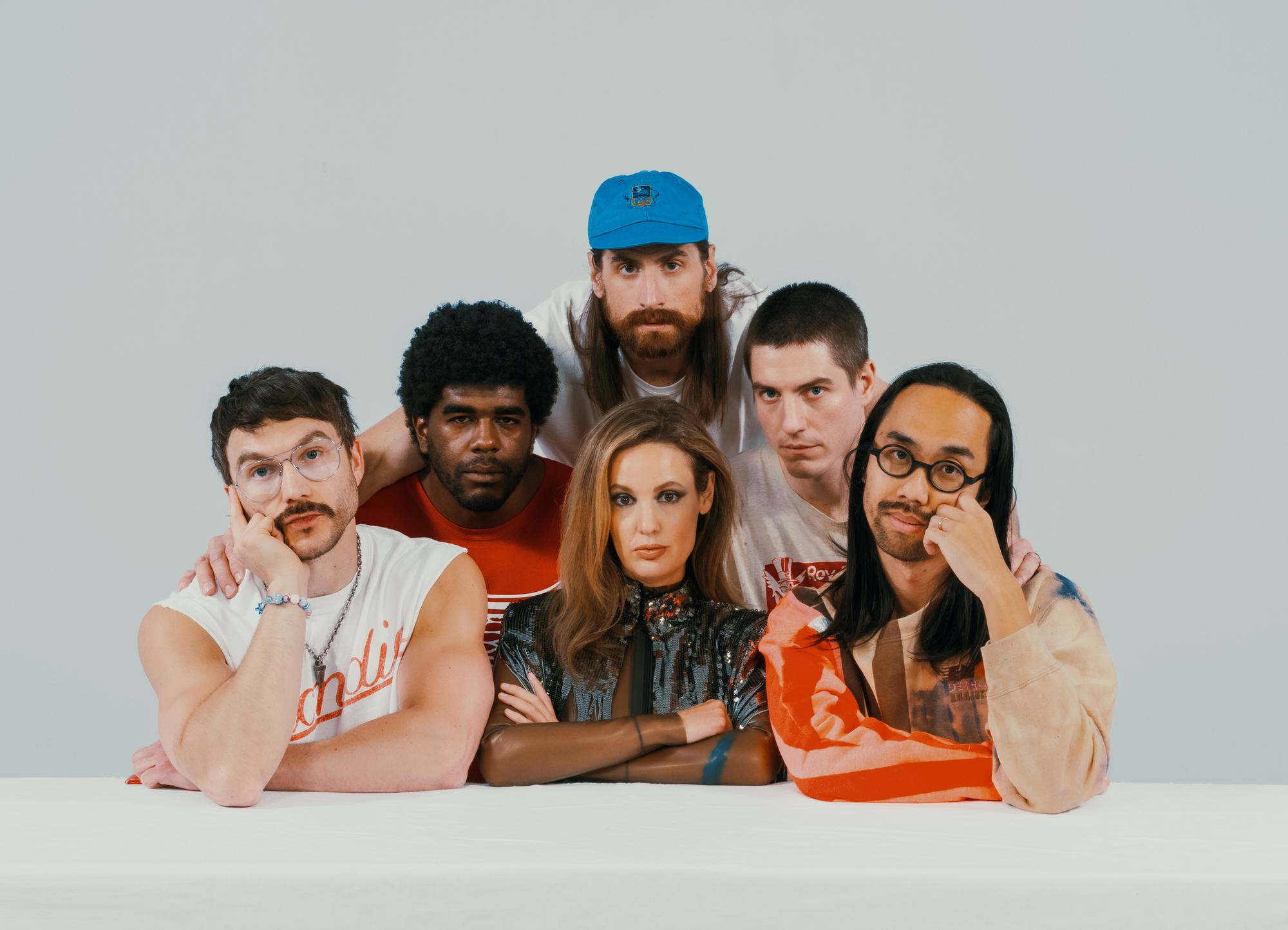
The Armed are human after all
Tony Wolski, frontman with Detroit hardcore collective The Armed, tells Steven Loftin about finding authenticity in heavy music.
If you’re a realist, look away now. Life reads better when you suspend your beliefs. Simply, unpacking the magic trick is never as fun as the blissful fantasy. It is, by this logic, The Armed steadily ran their course for the last decade. But sometimes, the truth is needed to set you free.
It’s also against human nature to be caged – by rules or systemic ideas. It’s also ingrained in us to breed connection, yearning for reaction and reflection in others. These facets of humanity are integral to understanding The Armed.
It’s in the crowds, the stories, the characters, the members – each a different life form serviced by the Armed as an idea. They collide together in a rapturously violent hardcore sound, paving the journey that this collective has been on since 2009 when they first gathered after the dissolution of their initial band, Slicer Dicer. It’s all cemented in, as longtime orchestrator Tony Wolski muses, “What if confusion was the medium?”
It’s why most articles about the band have existed around the idea of who/what they are. Often revealing nothing thanks in part to The Armed’s wile manner and less-than-forthcoming nature: “It's not scattershot, or done without intent, but, what if things were okay to be confused by and that was just the end of it?” He presses, “What if you didn't need to figure out everything?
Equal parts energised enthusiast and attentive presence, Tony Wolski is as intense as you’d expect. Even during our interview, the 37-year old Detroit-based creative hosts with the same light-hearted wink often found in The Armed’s projects, occasionally erupting into laughter gloriously. It would seem he’s every part the rock-band front person – and indeed the Armed’s, since 2021’s ULTRAPOP.
“That's been a massive adjustment for me, for sure," he admits. Originally the drummer for the outfit, his ascension to the focal point in 2021 also saw the collective physically bolster their look – with many going through strict diet and fitness regimes to become chiselled Adonis’ of the hardcore world. “I don't pretend to be comfortable with it in any degree. I mean, that's probably why for the last album we did this body transformation. It's not an inauthentic representation of myself. It's a representation of what I want to be on stage.”

It’s here the first human signs of The Armed came to light. While by no means a Daft Punk robotic enigma – the very basis of the Armed is an organic collective in every facet including music and visuals. But, being able to ascertain just what this all came to be and mean to its key players, has always been a question mark hanging in the air.
Wolski readily admits that "the idea of being unabashedly sincere and immediate with people is something that is new to us and it is scary.” Their fifth outing, Perfect Saviors is as immediate and vitalised as they’ve sounded. Previously hiding their melodies behind a wall of white noise, Wolski confesses, "we've always made records that not only reward multiple listens, but frankly, require them.” But for album five, it’s all on the table. Lyrics can be deciphered, the hooks knock you over with the force of a studious roundhouse kick – it’s the Armed’s most accessible, and by this, most open, album to date.
“But it is less scarier than it's ever been before because when you hit a certain age...I have a four year old who doesn't give a shit about any of this,” Wolski laughs. "You just stop caring! And I don't mean that in the wrong way. I care about it from a quality perspective more than ever – I just don't give a fuck what anyone thinks anymore. That was a running theme for it.”
This new aloofness suits Wolski. Previously having gone by several monikers including Adam Vallely and Clark Huge, his decision to come completely clean on the Perfect Saviors press cycle – including being an ad exec for various corporations – is a completion of his step into his new role. Referring to his previous exploits as "good character building,” being able to hide behind these masks helped him assess what it would take to front a powerhouse rock band. “It helped me get around being shy in certain ways, or not willing to be that vulnerable if I could put it on something else. Cara (Drolshagen, vocalist) from the band actually talked about that a lot like in Twin Peaks, there's the Tulpa's.”
In this vein, the band's avatar Daniel Greene – the vacant if driven face often seen in their videos – and longtime purported orchestrator is the shadow twin of the real Dan Greene. A man now confirmed to be wholly existent, and hidden in plain sight in many of the Armed’s releases and visuals, including the cover of their Untitled 2015 debut.
“It's showing the duality,” Wolski explains. “The real Dan Green is an incredibly humble, quiet man. He doesn't realise his importance, but he's central to this band, he's central to everything. It's a symbiotic relationship.” A basic enough principle. But as Wolski talks, the famed Armed obfuscation curtails the black-and-white nature into a messy grey one. Mentioning the handful of characters that have come to live in the Armed’s multiverse – a mysterious ghillie-suited figure, a wannabe astronaut named Keith, to name a couple – “Are they manifestations of Dan Greene's illusion? Or is Dan Greene the collective delusion of the band?”
The apex of this idea comes in the group's 2021 ULTRAPOP: Live At The Masonic. A vastly underrated live film which brilliantly explores the collective's cinematic side with the vastness of the Armed's lineup. In it, Greene – portrayed since 2015 bu photographer Trevor Naud – becomes the protagonist, breaking the wall between him and the band, while also lighting the rumour-fires with his vocal inclusion on "FORTUNES DAUGHTER". He's a character that the Armed faithful know well, and this iteration of the character finds power and symbolism corrupting his mind. Not your standard-fare concert movie, it's fair to say.
Confessing that Greene’s experiences are “definitely reflecting our own insecurities and concerns along the way. He’s become this dumping [ground],” Wolski smiles at his realisation. “Dan Greene the character is basically our therapist. Real healthy people would just go to therapy but all of us instead distil it down into abstract concepts to torture this character,” he chortles. Likening this situation to that of Spiderman, a character Wolski grew up loving, he mentions that “he was just a nerd constantly getting dumped on.” And it’s Peter Parker’s experiences being lived by proxy through readers like Wolski that give Dan Greene his life. “It’s a constant series of confusion and revelations...he's going through the shit all the time – and I don't think that's going to change. Whether we see Dan Greene have an absolute wonderful time one day, I'm not sure – maybe. I do feel for him, though. But I think he represents the struggle that all of us have with self-awareness and brief moments of brilliance. And that's something that ebbs and flows throughout life. So that's what his arc is gonna be.”
"Our art has always been incredibly authentic and truthful. I think that's what most people are reacting to. And it does appear to be that 95% of the people get it."
Being an art collective by nature means their interpretations are pretty self-aware. Wolski knows that for the Armed's ideas to take flight there needs to be something beyond the surface. For all the shenanigans they have become renowned for, he enthuses that "our art has always been incredibly authentic and truthful. I think that's what most people are reacting to. And it does appear to be that 95% of the people get it."
Wolski reckons that the space they inhabit is above all else. Not in a grandiose, hubristic manner, but more so in an attempt to brighten the horizon for all. "I think heavy music is in so many ways decades behind, certainly in the criticism and the fans there's a lot of binaries there,” he says. “A lot of what we're trying to do often, both sonically and conceptually, and visually and everything, is to broaden that scope. I know that that will turn off a lot of people because your brain is naturally trying to categorise something when it sees it.”

A formative moment for Wolski was seeing At The Drive-In supporting Rage Against The Machine. Admitting his initial "disgust" at what he was witnessing, "everything about this is wrong," he recalls thinking. "They're not singing in key, barely playing their instruments – two weeks later, they were my favourite band and they have shaped so much of what I do to this day."
This provocation is engrained in the Armed's DNA. It’s in the way the sounds and visuals all combat each other, rarely paying ease or service to anyone but its creators. "We are purposefully trying to agitate, we're trying to play into that confusion a lot because I think when you give in to that, and you realise, hey, that can be that. It makes you a kid again.” Being confident enough to boldly bear these intentions is a far cry from their start as a collective where they were wrapped up in layers of irony and post-irony. Confessing their intentions Wolski admits, “is something that I would be scared to articulate in my younger days. And now I don't care. I love it. I want people to have a childlike reaction. [And] most of the things that I've ever loved, I have viscerally been disgusted by."
Reactions like these are what greeted the Armed on their recent support run with Queens of the Stone Age – whose guitarist Troy Van Leeuwen is a key player in penning the Armed’s songs. First on in the afternoon at half-filled amphitheatres, this trial by fire proved to be a true test for Wolski and co and their artistic endeavour. “I don't want to get too much into it, but we were forbidden from doing so after a few different incidents,” he reveals of their usual crowd-enticing antics being put pay by the big wigs at Live Nation. This meant the Armed had to adapt. Or, in their case, expunge all that energy onto the stage, often at the expense of their equipment. “God bless Fender, they were overnighting us guitars to multiple things,” he excitedly recalls. It’s the human connection they’d crave. Spotting eager ULTRAPOP shirts at the front, and being unable to welcome them into the Armed fray by going to “hug them or yell at them,” instead “I didn’t know what the fuck to do. As much as our art is considered we try to keep the performances doubly visceral.”
Brutalising themselves and their gear in the name of reaction, it’s this same ferocity with which their fan base fills the dedicated Discord server – a like-minded community fostering the madness that is still a shock to Wolski. Particularly given that for the most part, the Armed is a fruitless financial endeavour. In his mind, Wolski sees it as “We've been doing it for a long time. I think we deserve to do what we want to do.” With that, he knows the followers they’ve welcomed aboard are in for whatever the Armed deliver. Part of the recruitment process is unequivocal belief. “It's cool to finally get to this point where a lot of people are willing to go down that journey with us, and fucking give us the benefit of the doubt.”

Perfect Saviors is the finale of a trilogy. Beginning with 2018’s Only Love, followed by ULTRAPOP, the closing segment brings this artistic spotlight on pop culture and humanity together. Silent characters play an important, unspoken part in this trifecta in bringing them to life. Adorning each of their releases are human forms, inadvertently hosting a wealth of meaning, and imposing personality directly onto the projects. Only Love features a bartender serving the ghillie-suited character, ULTRAPOP is a striking portrait on luminous orange with the title in teal, and Perfect Saviors is the most outwardly fraught with the human idea - three AI-generated perfect saviour’s.
Each project is purposeful in its design. Most of the collective has a visual background, Wolski confirms. “Portraiture, in general, has always been an effective thing – there's something about a human element in something, is it inviting you? Is it challenging you? What's the intent here? So that kind of precedes the trilogy, but in the usage of the trilogy, we learned about it in a very specific way.”
Explaining how the Only Love artwork was designed to confuse, aimed at matching the sonics held within: “It was introducing these pop elements into our modality of weird hardcore but in very primitive ways.” ULTRAPOP was more considered in that “the whole point was to create something that's the most fucked up Spotify playlist that you've ever encountered.” Often represented by a “high-fashion Juggalette”, bodybuilders and everything in between – particularly in the video for “AVERAGE DEATH” – it plays as a surrealist parade maximising an instinctual reaction.
“And then for Perfect Saviors, it's again a thematic arc, but it's the complete mutation of that,” he continues. It’s in the blatancy of their fifth album that the truth escapes.
The use of AI in a time when technology has become an antagonistic reminder of human worth is indeed straight out of the Armed’s playbook. Wolski gleefully explains that this was all part of the plan. “We wanted to return the art to the chaos of the Only Love visuals,” he says. “But in the most mutated, fucked up, potentially controversial way.” These images are littered throughout the Perfect Saviors artwork. From wrestlers and superheroes to rockstars, there’s an uncanny valley to them all. Most striking is when Wolski mentions “They're things we've been accused of…it's all one thing. And purposefully tapping into AI as an aesthetic to, frankly, piss people off.”
To this, the Armed’s bed has been made and they’re rightly laying in it. Though as I mention to Wolski, it seems they’re more provocateurs than antagonists – pressing buttons to see how the boundaries move, not to rattle against them to burn the world down. They’re still human, after all. They’re still artists. “We're trying to provoke you,” agrees Wolski. Bringing up David Bowie as an example, the epic career that unspooled once David Jones dropped his birth name, it’s these same principles but for a more fractured, urgent world that demands more intrusive ideas. It’s why now’s the time for the truth to set them free, because nothing is scarier than realising all that exists is what’s laid out in front of you.
“Sure, naming [a song] ’Liar 2’, that was probably a little bit antagonistic,” he says doubling back, referring to their beloved debut 2010 with a wry smile. “But we're trying to provoke people to think about things a little deeper.” Mission accomplished in that case.
Get the Best Fit take on the week in music direct to your inbox every Friday

Emma-Jean Thackray
Weirdo

Viagra Boys
Viagr Aboys

William Tyler
Time Indefinite





